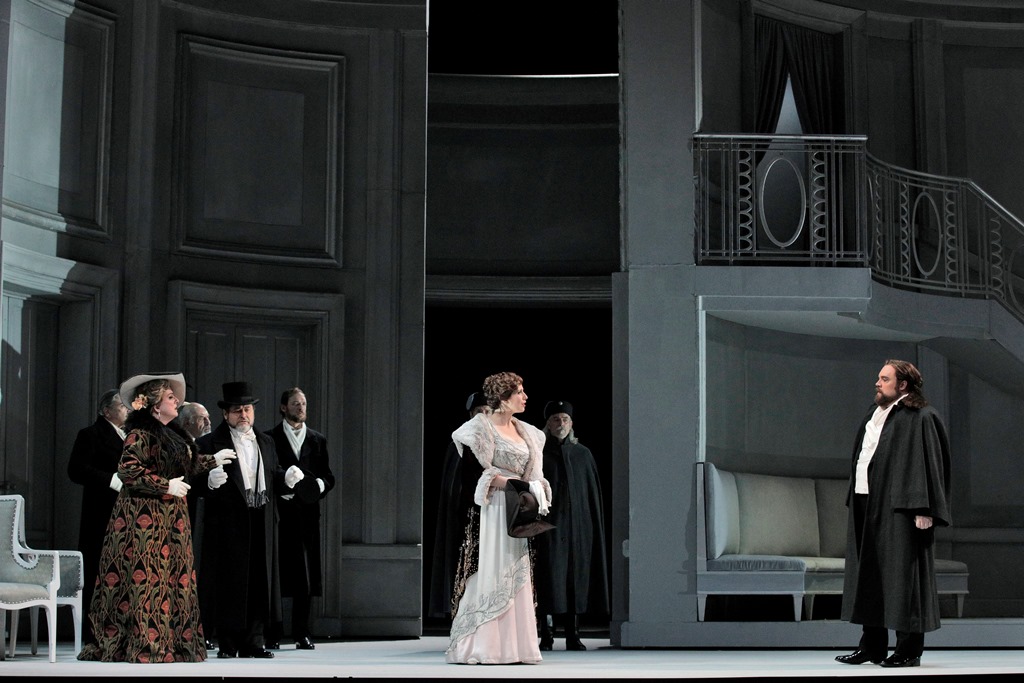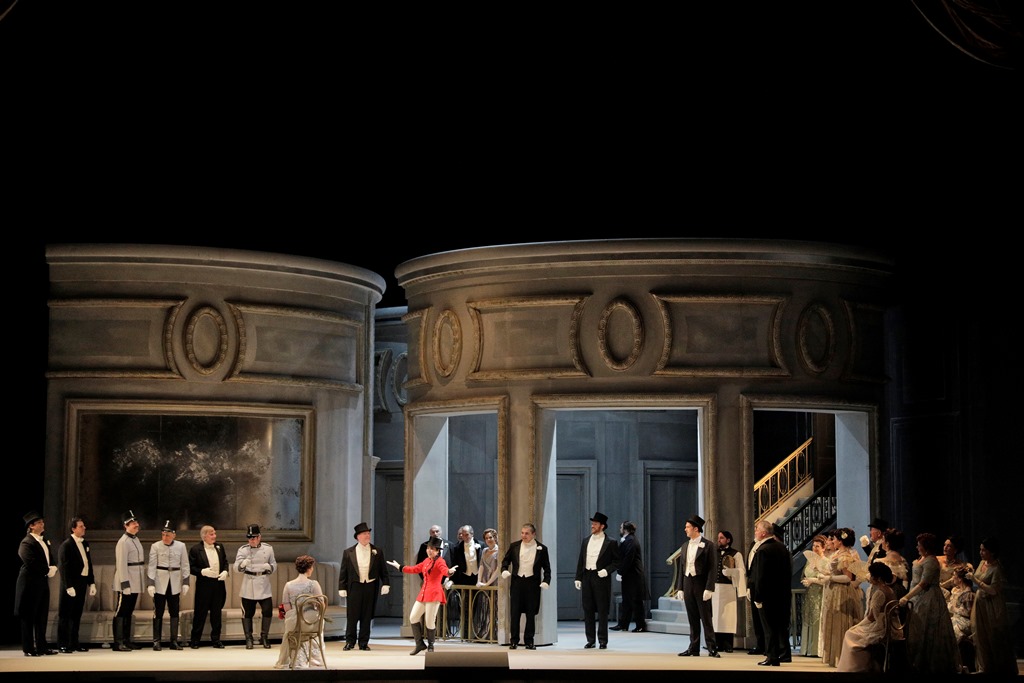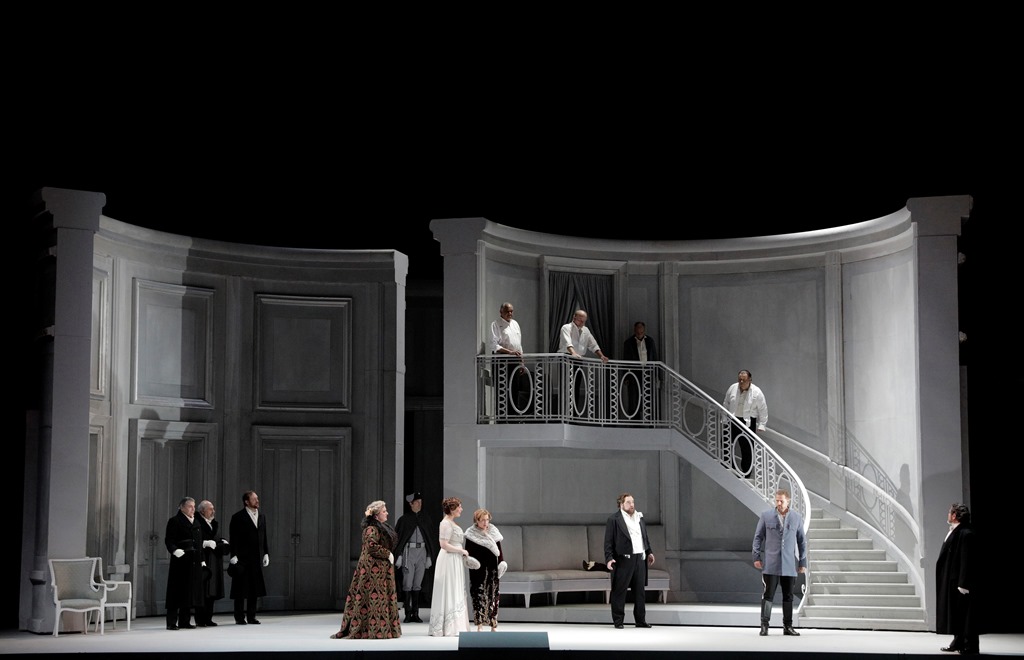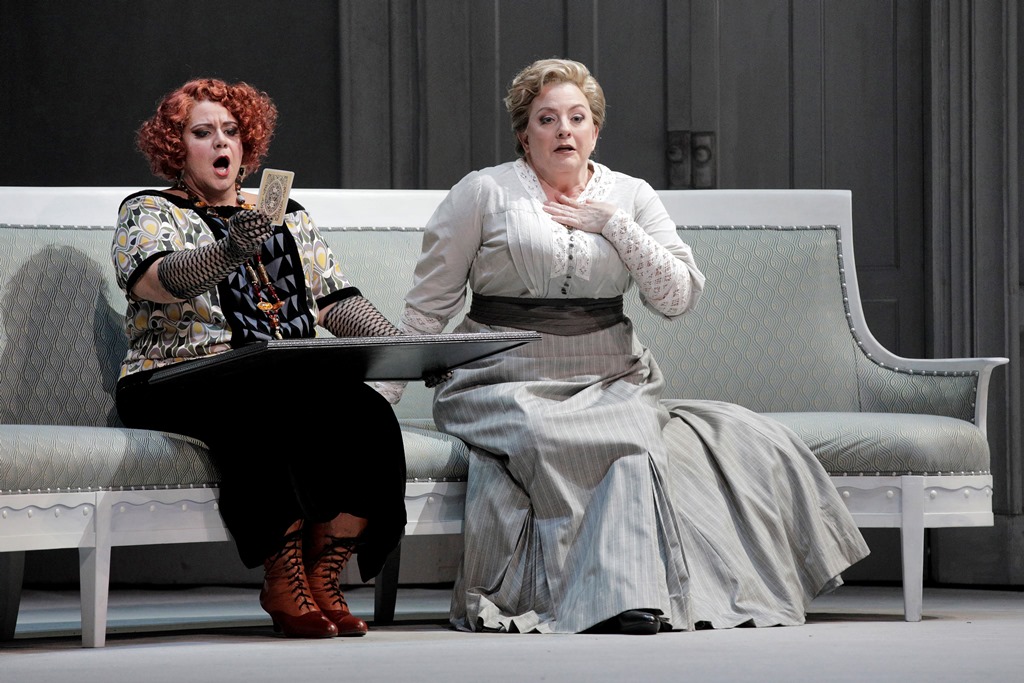A Flawed but Elegant "Arabella" Returns to SF
/By Elsa Tranter
10/22/2018
Photo credit: Cory Weaver / San Francisco Opera
It has been twenty years since San Francisco Opera last mounted Richard Strauss’s opera Arabella, which was first performed in 1933, well after the modernist Elektra and Salome. It marked a nostalgic return to happier, more traditional times of Der Rosenkavalier, and was written with his frequent librettist, Hugo von Hofmannsthal during the final days of the Weimar Republic. Unfortunately for all, von Hofmannsthal died suddenly, following the suicide of his 25-year-old son, before revisions could be made. As a result, the libretto is overly complex and somewhat silly. One can only wonder how it might have been improved had the librettist been able to work on it further (Strauss declined to get someone else to step in to clean up the libretto, perhaps out of deference to his late colleague).
The music is reminiscent of Der Rosenkavalier, but without the richness and heartstring-pulling of the former. There are some beautiful arias and duets but overall it seemed less than top-notch. Perhaps that was the staging or the conducting or the singers—it didn’t quite come off the way it might have. Or perhaps the fault was in the opera itself—maybe that is why it has been mounted in San Francisco only twice before this year.



The current production, originally designed for and created by Santa Fe Opera, is a co-production with Canadian Opera Company and Minnesota Opera. It premiered in Santa Fe in 2012 and has been seen in the other two places since then. For this production English director Tim Albery has updated the action from 1860 Vienna to 1910 Vienna, a time of hedonistic triviality blind to the looming cataclysm of war. Similarly, the early 1930s, when the opera was written, was a time of ignoring the rise of another dark time in Europe.
The sets and costumes by German production designer Tobias Hoheisel are modernistic and monochromatic—all grays, whites and blacks (with two exceptions). The exceptions are the costume of the comic character, the Fiakermilli (“coach driver”), who is in bright red, and the huge bunch of red roses that are scattered around the stage. In Act I the stage seemed big and bare in addition to being a little bland, but each act was richer and the singers filled the space better. The costumes were elegant and lovely and matched beautifully the modernist sets.
The San Francisco Opera Orchestra was conducted by German Marc Albecht, making his U.S. opera debut. He brought an energetic style to the podium, though at times the sound overwhelmed the singers and could have been somewhat slower and softer. And the Opera chorus, directed by Ian Robertson, gave their usual elegant performance.
The story of love and lust, money and its lack, mistaken identities, broken promises and forgiveness, is complex and not altogether clear, but it all ends happily, much in the way that Rosenkavalier does (but without that opera’s poignancy of the passing of love from the older to the younger generation).
The title role was sung by American soprano Ellie Dehn, making her role debut. She is tall and elegant, and has a clear soaring voice. Her character seemed torn between being a coy chooser of a partner (as suggested in the libretto) and a shy maiden hoping to marry for love (rather than for money as her impoverished state would suggest). She lacked a little of the ‘owning of the part’ that some sopranos bring to a role. Perhaps that will change through the run.
Mandryka, the Croatian landowner who fills both her husbandly requirements(love and money), is sung by American baritone Brian Mulligan, who has a strong and vigorous voice. He seemed a little stiff in his actions and there was little chemistry between him and Dehn, but by the end of the opera he’d softened up a bit and their final duet suggested better days ahead.
The second female in the opera was Zdenka, the younger sister of Arabella, who dresses as a boy Zdenko, because there isn’t enough money to buy beautiful clothes and things for two girls. She was sung by American Heidi Stober, a very sprightly soprano (her character reminded me of Octavian in Rosenkavalier). Her love interest is Matteo, a young officer, sung with charm and charisma by Swedish tenor Daniel Johansson, making his San Francisco debut). Their spontaneity was a clear contrast to the more formal interactions of Arabella and Mandryka.
The final pair of singers, who provided a lot of comic relief to the evening, were the parents of the two girls (on the verge of becoming women). Count Waldner was sung by American baritone Richard Paul Fink and his wife, Countess Waldner, sung by American mezzo-soprano Michaela Martens. They seemed a real couple and both sang and acted with panache! She put up with a lot as he was an inveterate gambler and was the cause of all their money problems. Perhaps they were meant to be an example of ‘to love and to cherish; for richer or poorer’ in thinking of the young peoples’ potential nuptials.
Playing the crisp part of the Fiakermilli, here called a cabaret singer, and dressed in the aforementioned red riding/nightclub outfit, complete with a whip, was Korean soprano Hye Jung Lee. Her voice was bright and cheery and she pranced around the stage in a way reminiscent of Oscar in Verdi’s Un Ballo.
Rounding out the cast, in minor but well sung roles, were Jill Grove, Scott Quinn, Chester Pidduck, Anders Frohlich, Jere Torkelsen, Andrew Manea, Christian Pursell, Alan Chchran, Bojan Knezevid, William O’Neill, and Valery Portnov.
The action is set on Shrove Tuesday, day, evening, and night. The significance of Shrove Tuesday and Ash Wednesday with its theme of celebration, forgiveness, and self-denial, can somehow be wound into the libretto (the forgiveness of Arabella and Mandryko of each other suggests denying themselves the anger that they feel about the other’s actions). It’s a complex, not entirely satisfying opera, but the bottom line of a happy ending and a new start in life for the next generation seems good for an elegant night at the opera.
One interesting anomaly was the varying starts to each act. In Act I the curtain rose and the music/singing started, no overture; in Act II the curtain rose and the singers moved around for a minute or two before any sound was heard; and in Act III, there was a full overture before the curtain went up. A little unusual….
Three performances remain: October 24 and November 3 at 7:30 and October 28 at 2:00.
Elsa Tranter is a Bostonian who has lived in Berkeley for over 40 years and has been an opera goer for most of those years. She worked as a graduate student adviser at UC Berkeley and still attends Cal Performances regularly. Her favorite composer is Wagner and her favorite opera is Tristan und Isolde.



